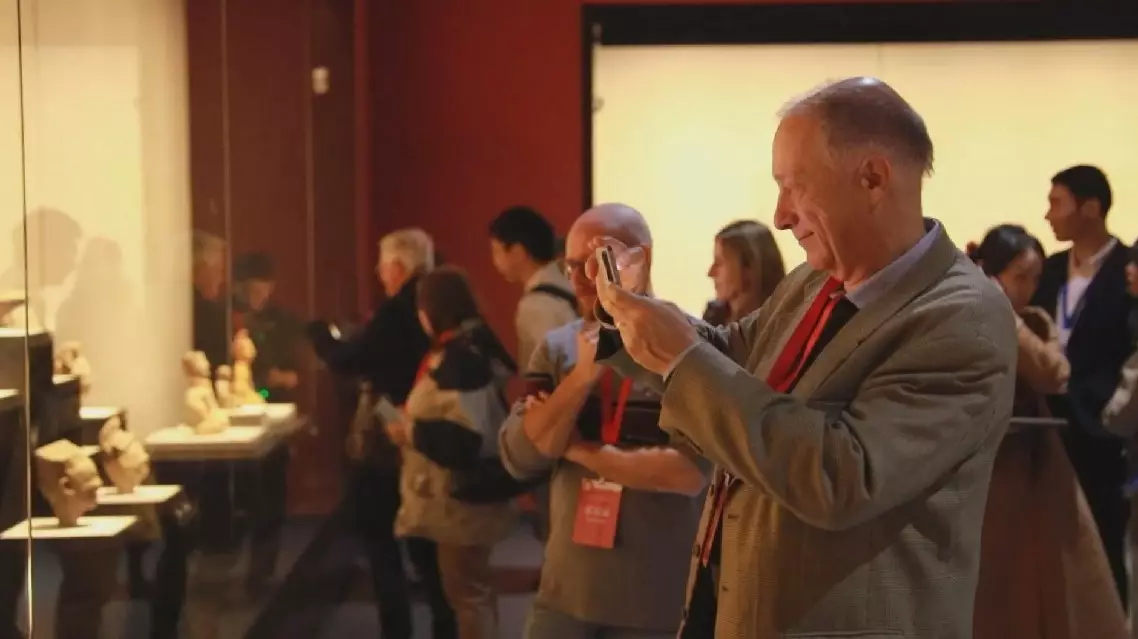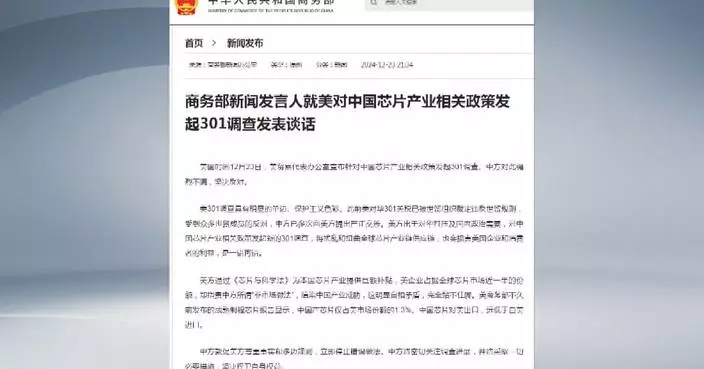Scholars from around the globe have been visiting various cultural sites across China ahead of the inaugural World Conference of Classics which opened in Beijing on Tuesday, as they engage in a cross-cultural exploration of ancient wisdom, opening the door to deeper mutual understanding between China and the West.
The group of foreign academics from countries including Britain, Germany, Greece, and the United States recently embarked on a tour to several cultural treasures in China's Henan, Sichuan and Shandong provinces, where they gained a deeper understanding of the differences and commonalities between Chinese and Western civilizations.
In the Henan Museum in central China, foreign experts were able to get an up close look at the "Lotus and Crane Square Pot", the finest bronze vessel in the collection which dates back to the Bronze Age.
In the Sichuan Museum in the southwest of the country, foreign guests were awed by the exquisite cultural relics related to the ancient "Shudao," or the 'roads of the Shu Kingdom' - dating back millennia.
"A museum can help to remind your ancient culture, your traditions. It is really important to remind [ourselves] what we were 2,000 years ago," said Filippo Costantini, assistant professor of Chinese Studies at the University of Cagliari of Italy.
Qufu in east China's Shandong is an important birthplace of Chinese civilization and the birthplace of Confucian culture, stemming from the thoughts of the ancient Chinese philosopher Confucius.
In the Confucius Temple, experts and scholars were treated to a Confucius worship performance that has been passed down for thousands of years. In the Nishan Scenic Spot, the large-scale ritual and music performance of "Jinshengyuzhen" combined Chinese classical art forms with stage installations and holographic images at the forefront of contemporary art, delivering a modern interpretation and innovative take on traditional culture which greatly impressed the foreign attendees. "I found it to be a very impressive ceremony, a very short selection, but [one which honored] Confucius. It was very nice," said Gregory Sterling, dean of the Yale Divinity School.
"I think it's one of the best performances I've ever seen in my life because the subject is unique, one of the highest in the history of thought. It conveyed all these messages included in the Confucius teachings to audience of modern times, like us," said Manolis Korres, a member of the Academy of Athens.
The three-day World Conference of Classics in Beijing will welcome participants from across the globe to engage in in-depth discussions on topics related to classical civilizations.

Foreign scholars visit cultural treasures across China ahead of World Classics Conference









